Coronavirus: UK's Sikh Vaisakhi festivals cancelled amid pandemic
- Published
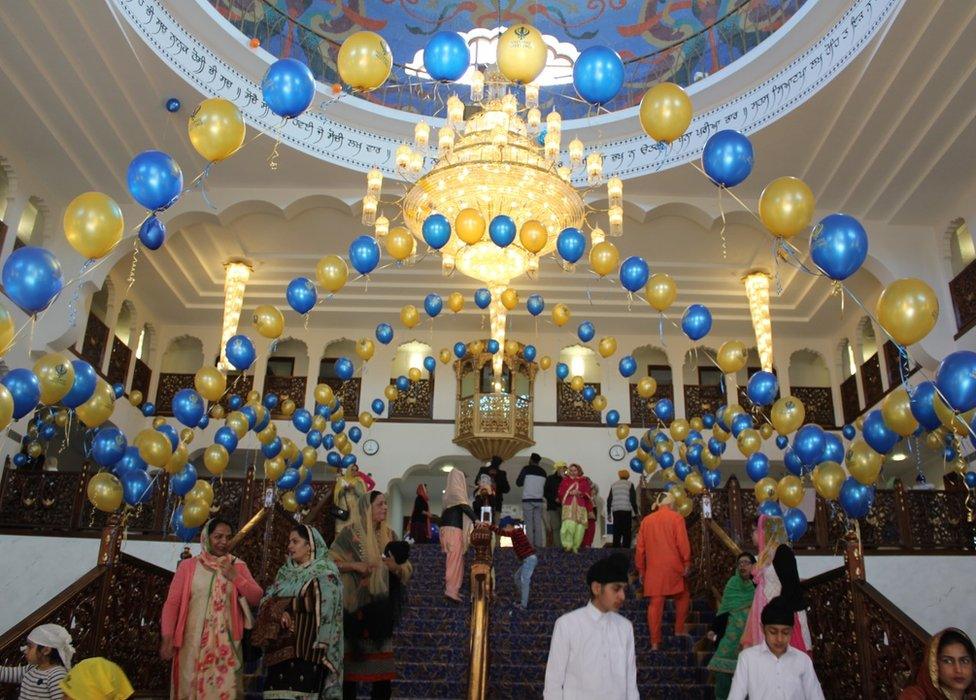
The gurdwara in Gravesend would normally be decorated for Vaisakhi

Celebrations to mark one of the most important dates in the Sikh calendar have been cancelled or postponed because of the coronavirus pandemic.
Vaisakhi, which this year falls on Monday, commemorates the creation of the Khalsa, a collective body of initiated Sikhs.
In past years, thousands have gathered in the towns and cities that are home to England's largest Sikh communities.
But now gurdwaras have found ways to take Vaisakhi into people's homes.
Two of the biggest events that would have been held later this month were in London's Trafalgar Square, external, where more than 30,000 have gathered in past years, and Birmingham's Handsworth Park, external, where up to 100,000 people were expected.
Celebrations in Leicester, Southall and Gravesend have also been brought to a halt.
In London, cultural advisor to the mayor, Manraj Singh Othi, said while Vaisakhi had brought together Londoners, Sikhs and non-Sikhs alike, public safety came first.
Those feelings were echoed by the Council of Sikh Gurdwaras in Birmingham - and in Southall, west London, gurdwara general secretary Navraj Singh added: "No event in the Sikh calendar should endanger lives."
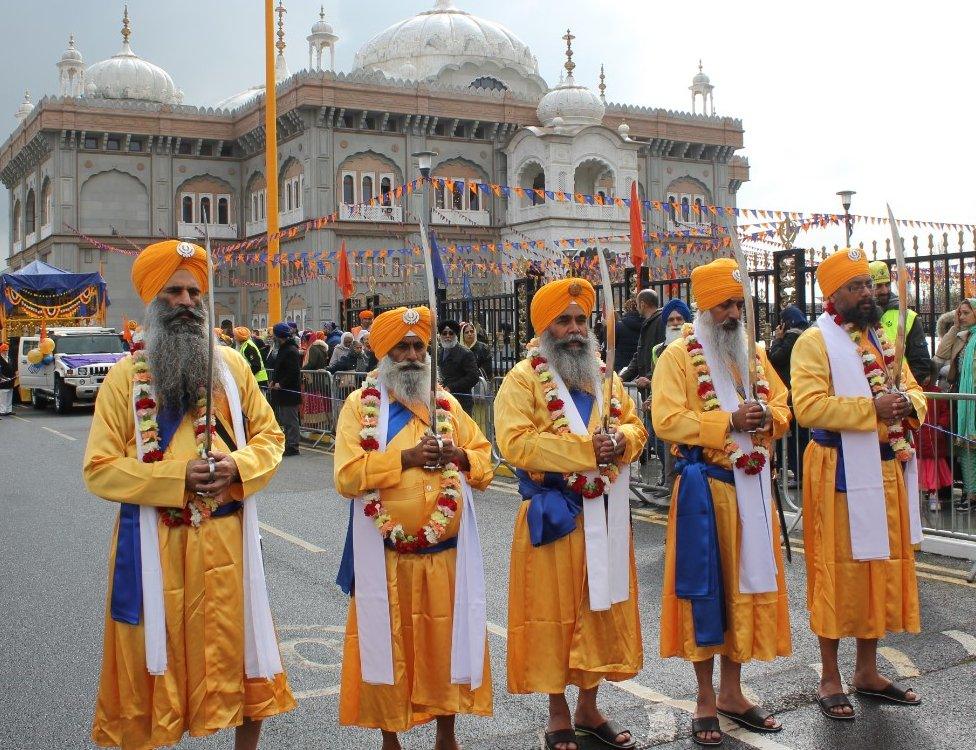
Vaisakhi commemorates the creation of the Khalsa, a collective body of initiated Sikhs
At any other time, celebrations would have included colourful street processions, or nagar kirtans, and free food, or langar, as well as cultural activities including arts, crafts, entertainment and martial arts.
But this year, religious worship has moved online and the Sikh practice of offering food was set to be taken out to the community, as people self-isolated and stayed at home.
In Leicester, that initiative has been backed by the Leicestershire Police Sikh Association, which has been helping to cook and deliver meals, distributing between 300 and 400 meals to people each day.
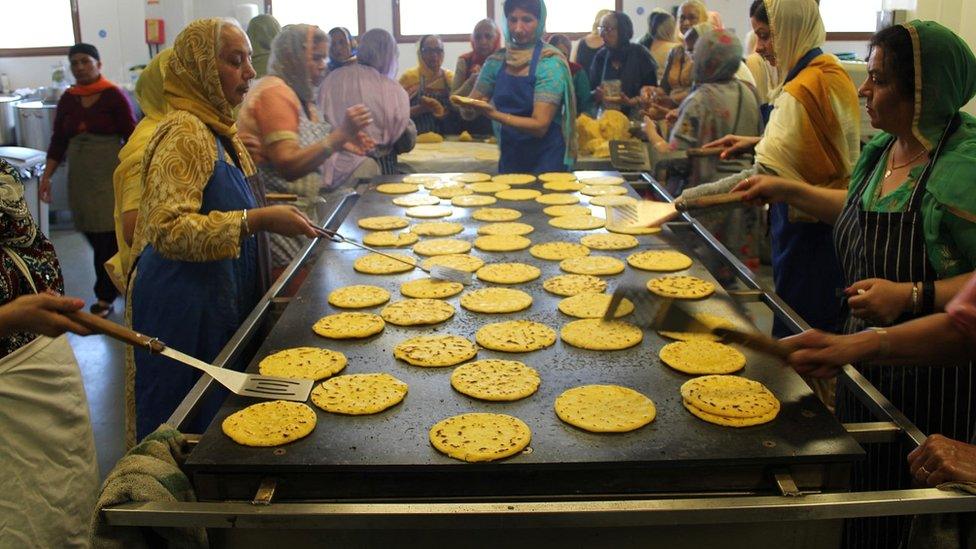
Offering free food, or langar, is a tradition in the Sikh faith
Meanwhile virtual worship included prayers direct from the Golden Temple in Amritsar streamed by Sikh2Inspire, external, meditation and talks by Basics of Sikhi, external, and a digital mass prayer on Monday, organised by Digi Sangat, external.
But there have still been mixed feelings.
In Hayes, also in west London, volunteer Sundeep Kaur Gosal said she missed the vulnerable people she would usually help with her "mind and heart", while Nari Sohal, from Slough, who volunteers for the charity Swat, said: "Life feels like it's at a standstill."
However, as reports emerged that ethnic minority communities were being hit hardest by covid-19, Harjinder Panesar, chairwoman of Harrow Sikhs, said she was relieved events had been cancelled, adding: "We can return next year when we have a vaccination."
Sukhjeevan Singh, from the Sikh Council UK, said special food production guidance compiled by the Sikh Doctors Association had been issued to gurdwaras during the pandemic.
Before the covid-19 crisis, gurdwaras already had "langar-managers" who had food hygiene training, allergen awareness, and food handling and hygiene policies in place, he added.
He said gurdwaras serving langar registered their facilities with their local authorities in a similar way to restaurants.
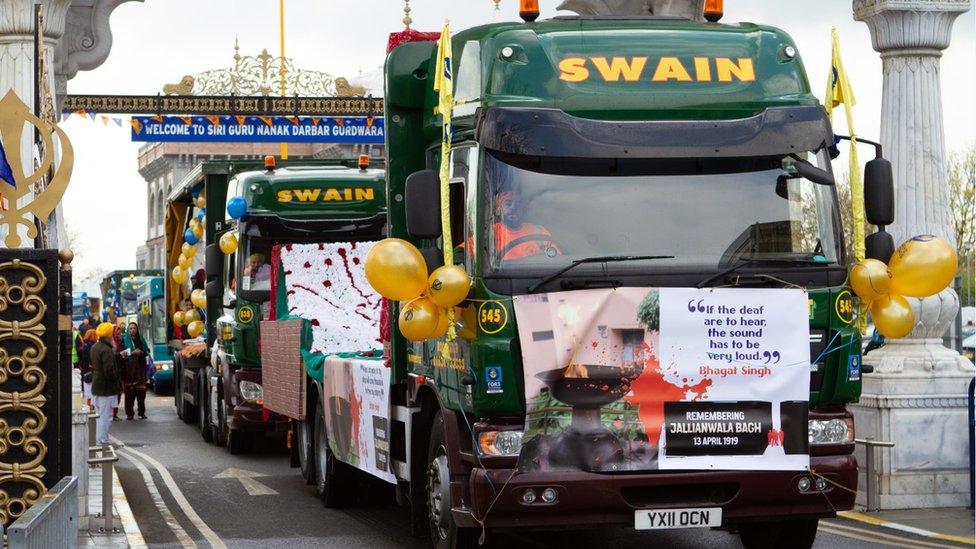
Street processions have been cancelled this year
In Gravesend, Kent, the gurdwara had expected about 10,000 people to celebrate Vaisakhi.
Newly-elected president Manpreet Singh Dhaliwal said, along with the virtual prayers and food deliveries, the gurdwara had been taking langar to NHS workers in several hospitals nearby.
Gravesend priest Giani Amerjit Singh said it was to say "thank you to all these people working on the frontline".
Hardev Singh Sohal, from Liverpool's United Sikh Association and Guru Nanak Gurdwara, said: "We believe the whole human race is one. We are all equal. Our religion believes in service and humanity. We help everybody."
He said all gurdwaras in Liverpool remained closed and this year he would be spending Vaisakhi at home with his daughter.
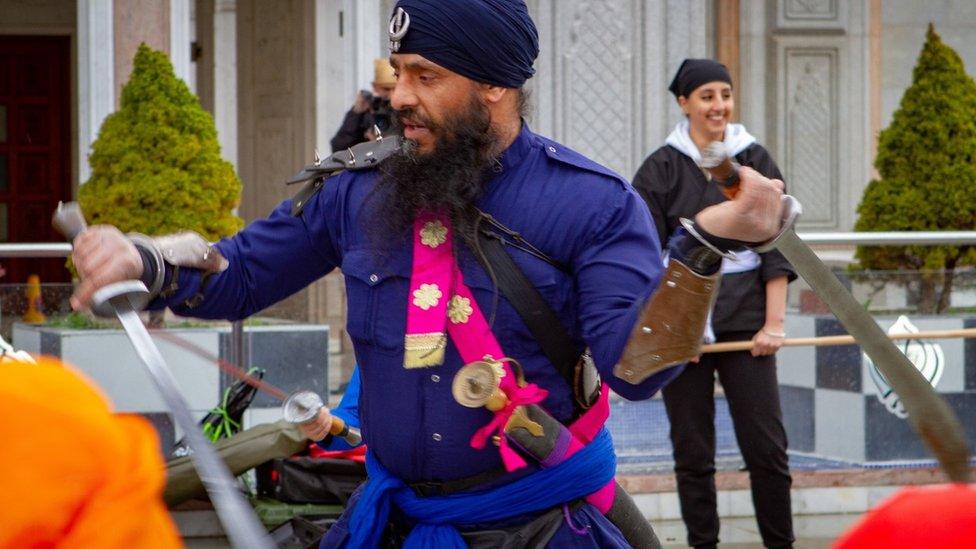
In normal times, festivals showcase cultural activities including martial arts
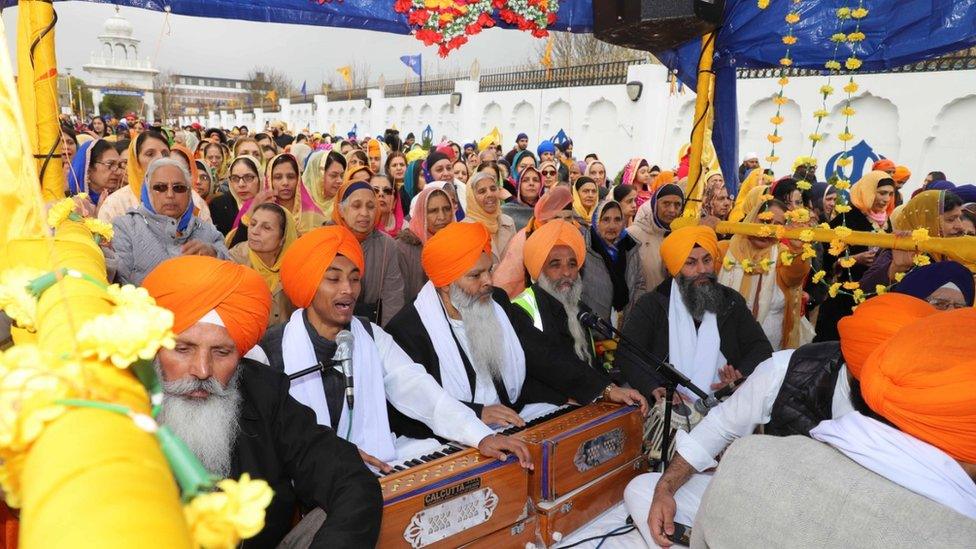
Celebrations would usually include singing along with arts, crafts and other music

A SIMPLE GUIDE: How do I protect myself?
AVOIDING CONTACT: The rules on self-isolation and exercise
LOOK-UP TOOL: Check cases in your area
MAPS AND CHARTS: Visual guide to the outbreak
VIDEO: The 20-second hand wash

- Published17 November 2019

- Published14 April 2019
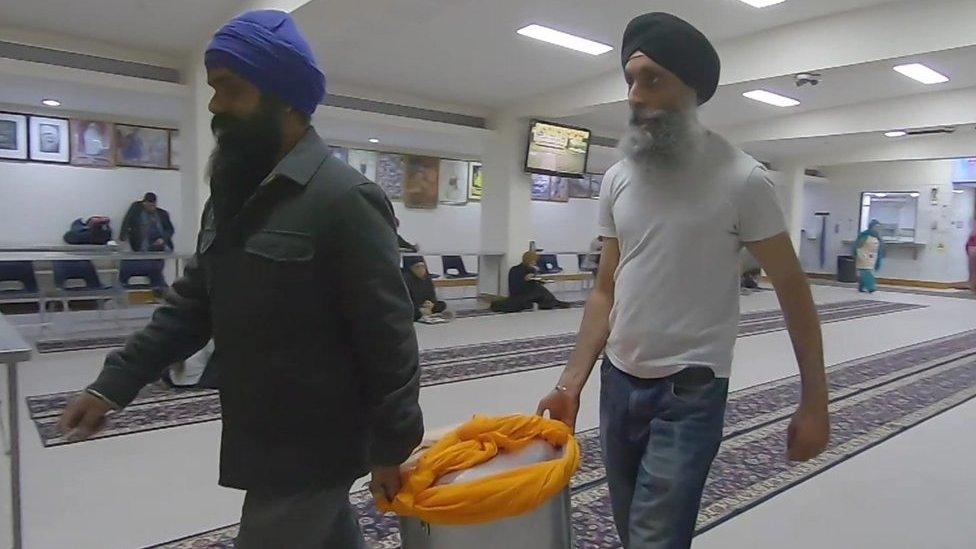
- Published14 April 2018